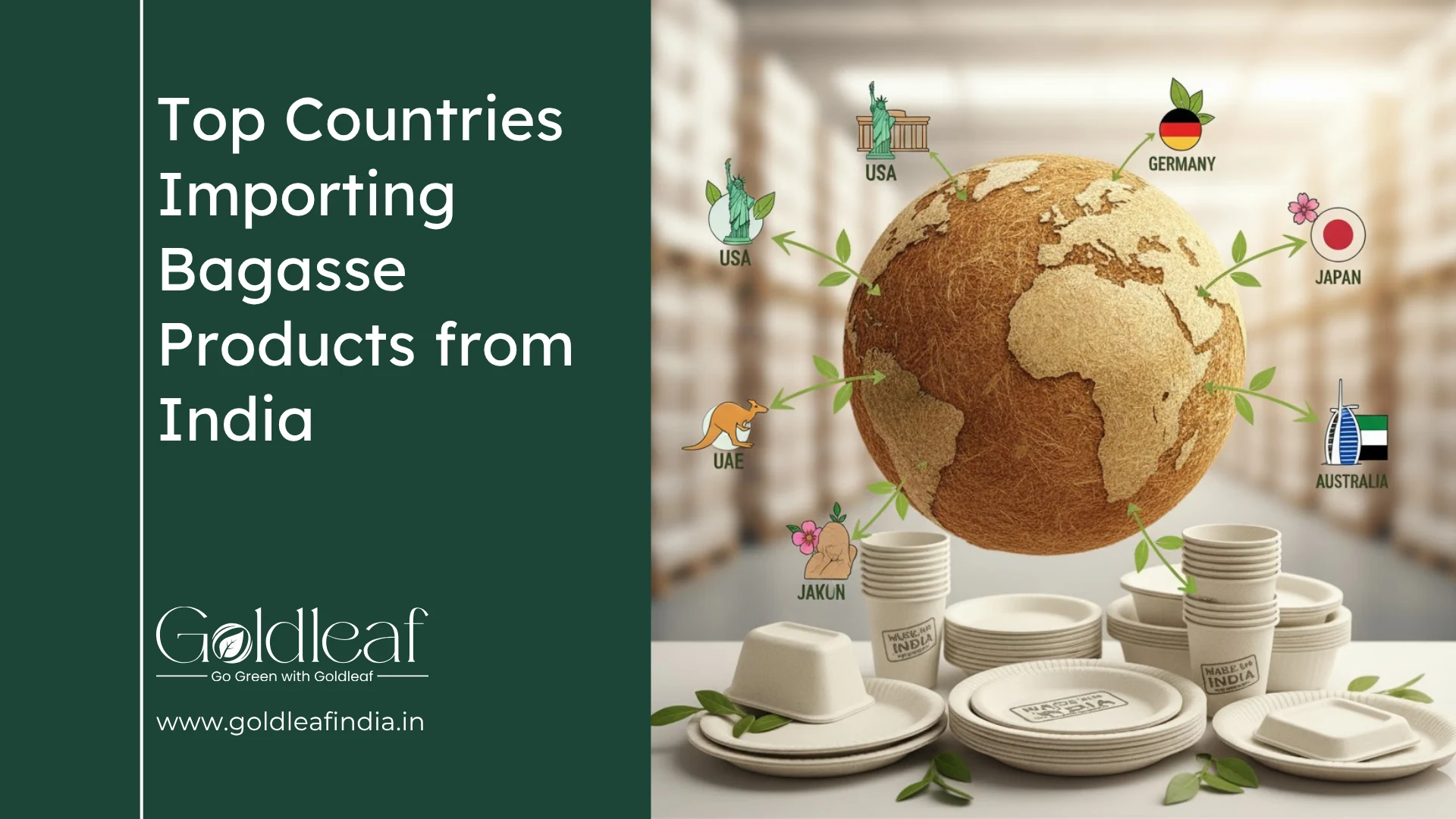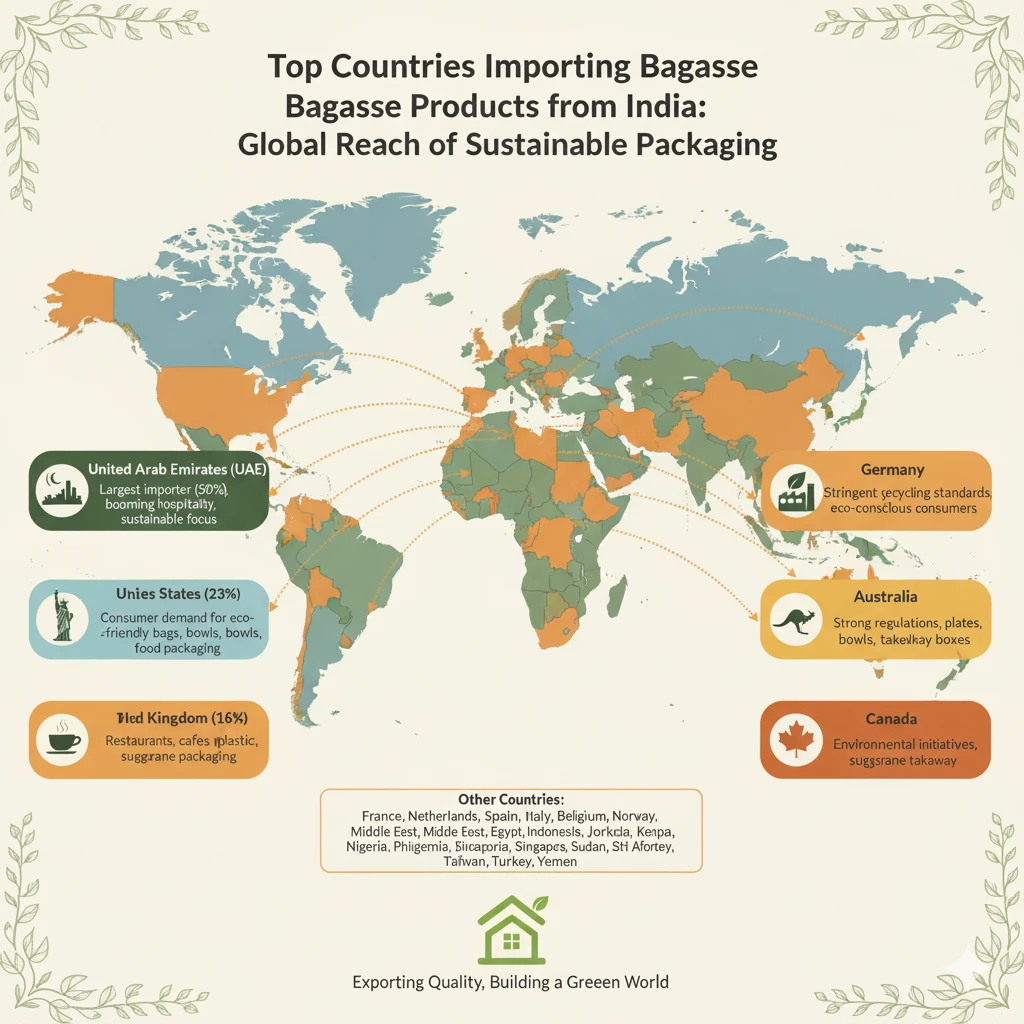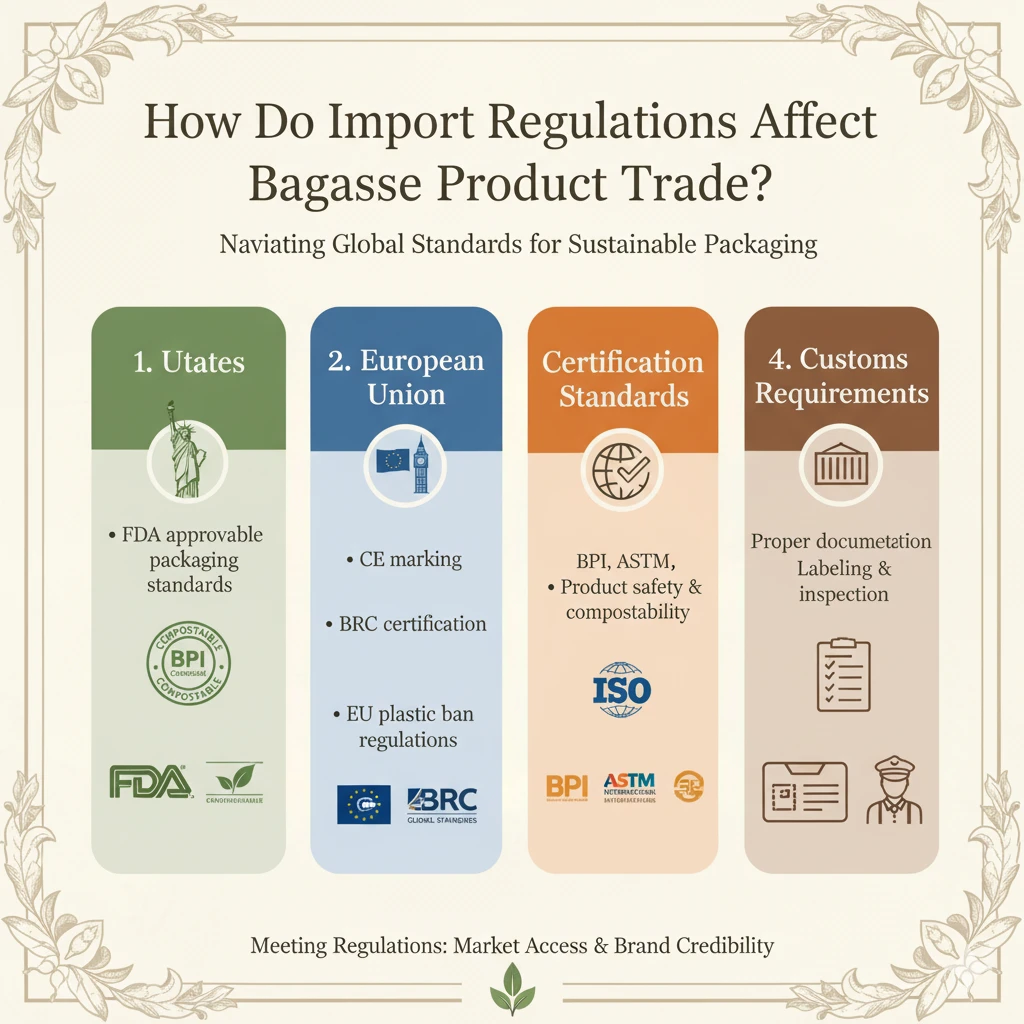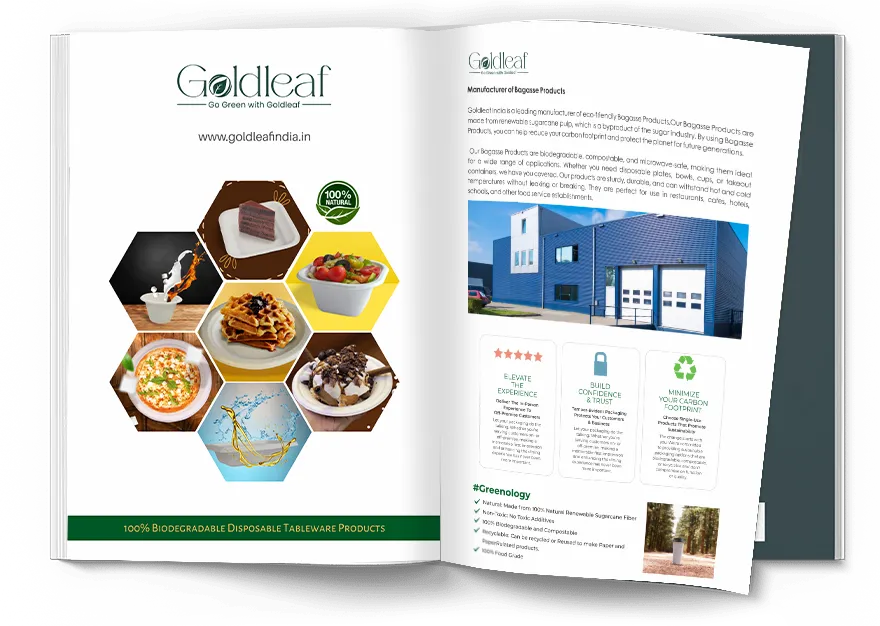Berhubung dengan pasukan kami

- 2082
Introduction
India has emerged as a global leader in exporting sugarcane bagasse products, catering to the rising demand for eco-friendly and biodegradable alternatives to traditional plastic packaging. From bagasse plates and bowls to containers and takeaway boxes, Indian manufacturers are supplying sustainable solutions worldwide.
According to export data from November 2023 to October 2024, India exported bagasse to 23 different countries. The top three importers were the United Arab Emirates, United States, and United Kingdom, collectively accounting for 88% of India's total bagasse exports. The United Arab Emirates was the largest importer, receiving 50% of the shipments, followed by the United States with 23%, and the United Kingdom with 16%.
In this blog, we’ll explore the major countries importing bagasse products from India, the companies driving these exports, and the factors fueling international demand.
What Are Bagasse Products?
Bagasse is the fibrous residue left after sugarcane juice is extracted. This byproduct is transformed into biodegradable tableware and packaging solutions, including bagasse packaging, sugarcane containers, clamshells, and takeaway boxes.
Bagasse products are not only compostable but also sturdy and versatile, suitable for hot, cold, and frozen foods. Their growing popularity reflects a global shift toward sustainable packaging practices.
What Are the Main Bagasse Products India Exports?
India exports a wide variety of bagasse products to meet diverse consumer and business needs. These include:
• Bagasse tableware and food service items: Plates, bowls, takeaway containers, clamshells, cups, and trays.
• Bagasse packaging materials: Food packaging solutions for retail and industrial applications, including disposable food containers and trays.
• Biodegradable cutlery and utensils: Spoons, forks, and knives made from bagasse fibers.
• Custom and specialty products: Printed or molded designs for branding or specific client requirements.
Indian manufacturers produce these products in different quality grades and certifications suitable for various international standards, making them a preferred choice for sustainable packaging globally.
Top Countries Importing Bagasse Products from India

• United Arab Emirates (UAE): The UAE is the largest importer, accounting for 50% of India’s bagasse exports. With a booming hospitality sector and a growing focus on sustainability, the UAE’s demand for bagasse boxes, trays, and clamshells remains strong.
• United States: The U.S. imports approximately 23% of India’s bagasse products, including bagasse takeaway containers, bowls, and food packaging materials, driven by consumer demand for environmentally friendly options.
• United Kingdom: The UK accounts for 16% of exports, with restaurants, cafes, and catering services increasingly replacing plastic with bagasse food containers and sugarcane packaging.
• Germany: Germany imports a wide variety of bagasse products due to its stringent recycling standards and eco-conscious consumers, including bagasse trays, bowls, and clamshells.
• Australia: With strong regulations against plastic waste, Australia imports bagasse plates, bowls, and takeaway boxes to meet the demands of foodservice providers.
• Canada: Canada imports sugarcane takeaway containers and bagasse trays, reflecting the country’s environmental initiatives and eco-friendly food packaging trends.
• France, Netherlands, Spain, Italy, Belgium, Sweden, and Norway: Companies like Goldleaf India Green export sugarcane bagasse tableware to over 25 countries, including these European nations. Demand is driven by environmental regulations and a growing preference for sustainable alternatives.
• Middle Eastern Countries: Apart from the UAE, countries across the Middle East also import bagasse products via companies like Quit Plastic, catering to hotels, restaurants, and food delivery services.
• Other Countries: Tamil Nadu Newsprint and Papers Limited (TNPL) exports bagasse-based paper products to countries including Australia, Egypt, Greece, Indonesia, Jordan, Kenya, Malaysia, Myanmar, Nepal, Nigeria, Philippines, Singapore, Sri Lanka, Sudan, South Africa, Taiwan, Turkey, Yemen, in addition to the UAE, UK, and USA.
This data highlights the wide geographic footprint of India’s bagasse exports and the versatility of its applications.
Factors Driving Global Demand for Bagasse Products
• Consumer Awareness: Eco-conscious consumers prefer biodegradable, compostable packaging over single-use plastic.
• Industry Initiatives: Foodservice and hospitality sectors are increasingly implementing eco-friendly practices.
• Economic Incentives: Subsidies and government policies support businesses transitioning from plastic to sustainable materials.
• Regulatory compliance: Indian products meet stringent environmental and food safety regulations.
• Cost-effectiveness: Production in India is competitively priced compared to local manufacturing.
• Quality and reliability: Indian manufacturers provide consistent quality, backed by certifications.
• Lack of local resources: Many importing countries do not have sufficient sugarcane or bagasse supply.
• Established export infrastructure: Efficient logistics and proven supply chains facilitate timely deliveries.
How Do Import Regulations Affect Bagasse Product Trade?

Exporting bagasse products requires adherence to international regulations:
• United States: FDA approvals and compliance with compostable packaging standards.
• European Union: CE marking, BRC certification, and compliance with EU plastic ban regulations.
• Certification standards: BPI, ASTM, and ISO standards ensure product safety and compostability.
• Customs requirements: Proper documentation, labeling, and inspection are mandatory for smooth trade.
Meeting these regulations not only ensures market access but also enhances brand credibility.
What Market Trends Are Driving Bagasse Exports?
Several global trends are fueling the growth of India’s bagasse exports:
• Widespread bans on single-use plastics.
• Corporate sustainability commitments and zero-waste initiatives.
• Increased demand from food delivery services and catering businesses.
• Consumer preference for eco-friendly disposable products.
• Growing awareness of climate change and circular economy practices.
• Post-pandemic focus on hygiene and safe, biodegradable packaging.
These trends have collectively positioned bagasse products as a key segment in sustainable packaging.
Conclusion
India’s bagasse products are helping meet the world’s growing demand for sustainable packaging. With the UAE, USA, and UK leading imports and countries across Europe, the Middle East, and Asia also participating, India plays a pivotal role in supplying bagasse packaging, trays, bowls, and containers globally.
For businesses and consumers seeking environmentally responsible packaging solutions, India’s sugarcane bagasse products represent a reliable, eco-friendly alternative to plastic.
© 2024 , Goldleaf ,
Semua hak terpelihara.
Made & Managed by Lightlink Solutions




